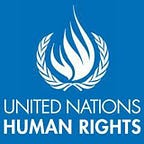Reintegration key to helping former child soldiers
Concern about the recruitment of children by armed groups as well as how they are treated when they return home, UN experts and others say a child-centred approach is best to keep children safe.
Thousands of children are still being kidnapped, coerced and recruited into non-state armed groups, as they continue to be targeted and victimised.
“Child victims who have been forced or lured into armed groups suffer a broad range of human rights violations and abuses, including their right to life, right to not be subjected to sexual violence or other forms of torture, right to education and right to freedom of thought conscience and religion,” said Saeed Mokbil, Chairperson-Rapporteur of the Working Group on the use of mercenaries as a means of violating human rights and impeding the rights of peoples to self-determination. Mokbil made his statement during the presentation of the Group’s report during the Human Rights Council.
The report looks specifically at the recruitment of children by non-State armed groups, including mercenaries, noting that this is which is itself a grave violation of international law. It also looks at the recruitment of former child soldiers into private military and security companies (PMSCs )and the factors that motivate children to join such groups, including seeking financial security.
“We have found that often the motivation for former child soldiers to work for PMSCs is a result of failure to reintegrate into society,” Mokbil said. “Some companies may take advantage of these individuals who are a form of cheap labour despite their experience in combat and armed conflict.”
Dispelling Myths
“One of the biggest misconceptions (about child soldiers) is that children are forced to fight,” said Sophie Bray-Watkins of War Child UK. “And while that is true, it is often a choice that children make, because of a lack of any other opportunity.”
War Child runs reintegration programmes and psycho social programmes for children who have been affected in the Democratic Republic of Congo and Central African Republic. Such long running conflicts, the needs of the children caught up in them can be lost, Bray-Watkins said. And what these children need are chances, she said.
“That is why it is really important for the international community to make sure there are opportunities for these young people and these children to be able to go to school and to be able to get jobs, so that they can live the life that they want to and be able to leave these groups and have something viable to do.”
Motivations to fight
What can be done to prevent or stop the recruitment of children as soldiers? One way is to get the armed groups to stop recruiting them, said Nicolas Sion of Geneva Call. Geneva Call works with armed non-State actors to encourage them to respect international humanitarian norms, to stop the recruitment and use of children in conflict and to demobilise child soldiers.
“Our objective is to influence armed groups to better protect children in the conflict and to stop recruiting and using children,” Sion said. “We also work with local communities on these issues so that they know their own rights and in particular the rights of children during the conflict. Once they are aware of these rules, they can carry out preventative activities to avoid child recruitment taking place in the communities and to positively influence armed actors.”
The approach has had some success. Four years ago, the Syrian Kurdish armed forces signed the Deed of Commitment protecting children in armed conflict. This meant these forces (which went by the names of the People’s Protection Units (YPG) and the Women’s Protection Units (YPJ)) would no longer use anyone under 18 in hostilities and would demobilise those children already in their ranks. Following this signature, these groups demobilised dozens of children. However, allegations of the use and recruitment of under aged children remained.
Interviews by Geneva Call with former child soldiers revealed complex reasons for joining armed groups. As the conflicts continue and civilian casualties rise, more children slip into poverty, face domestic abuse and have reasons to avenge loved ones. Geneva Call continues to monitor the situation with the leadership of the YPG/YPJ.
These reasons echo the Working Group’s recommendations, including that prevention measures should focus on rehabilitation and reintegration of children, addressing root causes that foster child recruitment into armed conflicts.
“The Working Group is concerned about the punitive approach taken by some States towards children associated with armed groups and insists that the best interest of the child should be the primary consideration” Mokbil said.
In addition, the report recommends Member States to criminalize the recruitment and use of children under the age of 18 in armed conflict and create better oversight of private military and security companies in their recruitment practices.
